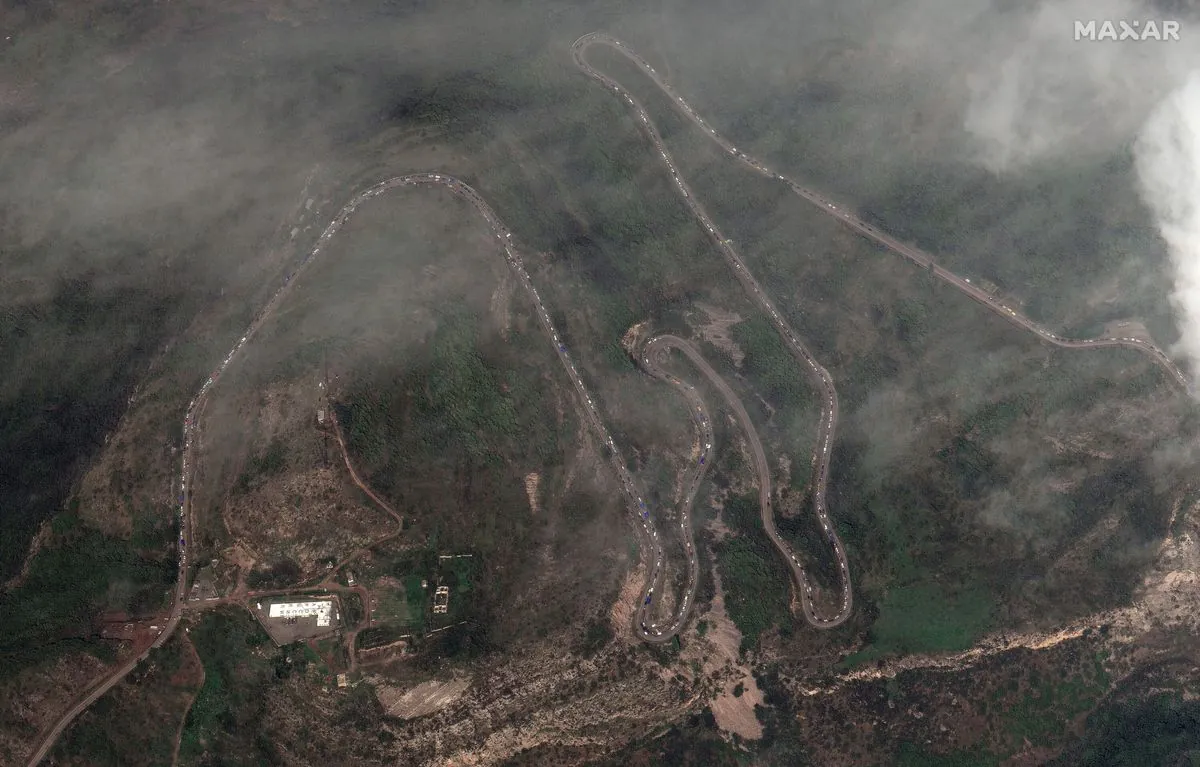Starmer Warns: Pylon Opposition May Lead to Tax Hikes
Prime Minister Keir Starmer cautions that resisting new pylons could result in higher taxes. He emphasizes the need for "trade-offs" in infrastructure development to improve services and reduce energy costs.

Keir Starmer, the UK's Prime Minister, has issued a cautionary statement regarding the potential consequences of opposing new pylon construction across rural areas. He suggests that such resistance might necessitate tax increases to cover the higher costs of alternative energy infrastructure solutions.
During a visit to New York, Starmer emphasized the need for "trade-offs" in infrastructure development to enhance services and reduce energy expenses. This stance aligns with his recent Labour conference speech, where he expressed readiness to make "unpopular" decisions to stimulate economic growth.
The Prime Minister's comments come in the context of a proposed extensive pylon network across Norfolk, Suffolk, and Essex, designed to connect North Sea wind farms to the national grid. This project is part of the UK's broader strategy to achieve net-zero carbon emissions by 2050 and expand its renewable energy capacity.

Starmer addressed concerns about the impact on rural communities, stating, "If you want lower energy bills, we're going to have to have pylons above the ground. Yes, there is the option to put them below the ground [but] it costs much more money." This statement reflects the significant cost difference between overhead and underground power lines, with underground cables potentially costing up to ten times more than their above-ground counterparts.
The UK's electricity infrastructure, managed by the National Grid since its nationalization in 1947, currently includes over 88,000 km of overhead lines. The first electricity pylon in the country was erected in 1928, marking the beginning of a network that now forms a crucial part of the nation's energy system.
The proposed East Anglia pylon project has sparked considerable controversy, particularly in constituencies that recently shifted from Conservative to Labour control in the July 2024 election. This political shift has resulted in opposition from Labour MPs representing affected areas, including Jenny Riddell-Carpenter of Suffolk Coastal and Ben Godsborough of South Norfolk.
"There is huge concern that enormous pylon projects will spoil areas of considerable natural beauty."
The debate surrounding pylon construction highlights the challenges in balancing energy needs, environmental concerns, and local interests. The UK's energy landscape is complex, incorporating various sources such as nuclear, gas, wind, and solar power. With over 10,000 wind turbines already in operation and offshore wind farms capable of powering millions of homes, the country is making significant strides in renewable energy generation.
However, the increasing electricity demand, partly driven by the adoption of electric vehicles, necessitates continued infrastructure development. Smart grids and energy storage solutions are being explored to manage the fluctuations inherent in renewable energy sources and improve overall energy efficiency.
Starmer acknowledged that some communities might need to accept new housing developments and prisons in addition to pylons. He stressed the importance of addressing issues such as the housing crisis and the lack of capacity in the justice system through increased construction.
While the previous Conservative government considered offering incentives like reduced energy bills to communities near new pylons, it remains unclear whether the Labour administration will pursue this approach or modify planning laws to expedite project approvals.
As the UK continues to navigate its energy transition, balancing local concerns with national infrastructure needs remains a significant challenge. The ongoing debate over pylon construction exemplifies the complex interplay between energy policy, environmental goals, and community interests that will shape the country's future energy landscape.


































